Why You Should Be Onboarding Your Restaurant Partners
TABLE OF CONTENTS
Optimizing onboarding processes for independent contractors and delivery drivers has been a huge focus for rapid food delivery companies in the last few years. With both established and challenger apps vying for their share of the growing q-commerce market, streamlining the journey from applicant to fully productive deskless worker has been a key area of focus for many operations and HR managers looking to curb premature turnover rates and streamline processes.
It’s true that ensuring efficiency and consistency in customer-facing roles is vital to the success of any food delivery company. 91% of consumers say that a positive customer service experience makes them more likely to make another purchase, meaning that delivering quality onboarding and ongoing training to retain high performers is crucial.
However, while focusing all of your training endeavors on the deskless worker demographic may allay pressing issues such as driver churn and performance, another equally important audience is being overlooked: restaurant partners.
The quality and efficiency of the restaurants featured on your delivery platform could be make or break in terms of customer retention, which is why upskilling vendors in addition to your on-the-go workforce could prove to be highly valuable.
Here’s why you should start onboarding your restaurant partners, the results it could generate for your business, and how to get started.
Why should I onboard restaurant partners?
Picture this: a user is logging onto your app for the first time and deciding whether to make their first order. One of the most crucial factors in this decision will be the variety and quality of restaurant partners listed on your platform. If the user isn’t sold straight away, they’ll simply go to one of the multiple other apps vying for their attention.
It means that the way in which merchants operate on your app is crucial to retaining customers, as well as the restaurants themselves. Without guidance on how to succeed on your platform - from how to take orders, to optimizing their menu - they won’t see the value of being there, and will be unlikely to stick around.
This doesn’t just mean restaurants leaving your platform - it also leads to them becoming inactive, inhibiting growth and crowding your app with idle restaurants which deter customers from placing an order.
The benefits of restaurant partner onboarding
1. Improves restaurant partner satisfaction
Providing in-depth training on how to increase sales and grow a loyal customer base shows vendors that you are willing to go the extra mile to help them succeed, and sets you apart from the competition. You can even go a step further by adding a feedback loop into the mix, enabling you to create impactful training content that’s led by your partners and their specific knowledge gaps, providing even more value.
2. Increase productivity
Restaurant partner onboarding isn’t just a nice-to-have - it’s crucial to staying competitive. By leveraging training, you can help restaurants get set up on your platform even faster and improve efficiency, reducing the numbers of canceled orders and increasing delivery rates. Comprehensive training and easy access to relevant information equals a more productive partnership for your restaurant partner, and for your business.
3. Ensures retention
Investing time and resources into training new merchants and helping them find value in your services is key to increasing and ensuring retention. The more empowered they are to complete orders via your platform and find solutions to any problems which may arise, the more likely they are to become active partners and advocates of your business.
As mentioned previously, this kind of onboarding is also beneficial for customer retention, ensuring that users are given a more consistent and high quality experience across your app which will make them want to return. 
What do I include in restaurant partner onboarding?
There are a number of different topics you can include in your onboarding program to ensure that new restaurant partners are fully prepared to start using your platform and that their services are optimized from the get-go.
Taking orders
It may seem simple, but providing some basic training on how to take and complete orders could save your team a lot of time spent solving support tickets, and prevent many restaurants from becoming inactive.
Utilize videos - these can be simple screen recordings with a voiceover, or live action walkthroughs - to demonstrate exactly how restaurants can use your app, and what to do when common issues such as canceled or missing orders arise. By making the transition to your platform as smooth as possible, you can ensure maximum productivity and increase retention.
Menu optimization
First impressions count, and many restaurants fall at the first hurdle by failing to optimize the content and appearance of their online menu. As an example: adding good quality photos is proven to boost sales by 30% of these platforms and can increase conversion rate by up to 25%, yet many restaurants still go without.
Dedicate a training module to menu best practice, showing merchants how to carry their brand identity across their menu imagery, ensure that users can easily find the information they need on allergens and dietary requirements, and even create copy that better engages customers.
Customer service
We often focus heavily on the customer service provided by delivery drivers, but it’s important to remember that customers can still have contact with the restaurants they’re ordering from.
If a customer calls with a query about the menu or a complaint about an order made through your app, restaurants need to be prepared on how to resolve issues quickly and efficiently. This can be achieved by providing scenario-focused training which looks at the potential issues which may arise and the steps to resolve them, as well as where they can go for support.
Product quality
Though it’s easy to assume that restaurants already know how to deliver consistently high quality food, it’s important to ensure certain standards are met when your company is the one responsible for delivering it to the customer’s dining table.
It’s recommended to provide standardized training and best practices to all vendors to ensure that food items are prepared safely and arrive at diners’ doors at a consistent temperature, condition and quality, regardless of where they’re made.
Restaurant partner onboarding offers numerous benefits to your business, but traditional methods are often time and labor intensive and can act as a roadblock. With eduMe’s mobile onboarding solution you can embed training content seamlessly within your native app, ensuring that restaurants have all the information they need, whenever and wherever they need it. Existing clients have already seen great results from this kind of onboarding, including faster time-to-productivity, an increase in deliveries, and a reduction in inactivity.
Join 10,000+ frontline leaders
Subscribe to ‘Training the Frontline’ and get weekly insights sent straight to your inbox.



